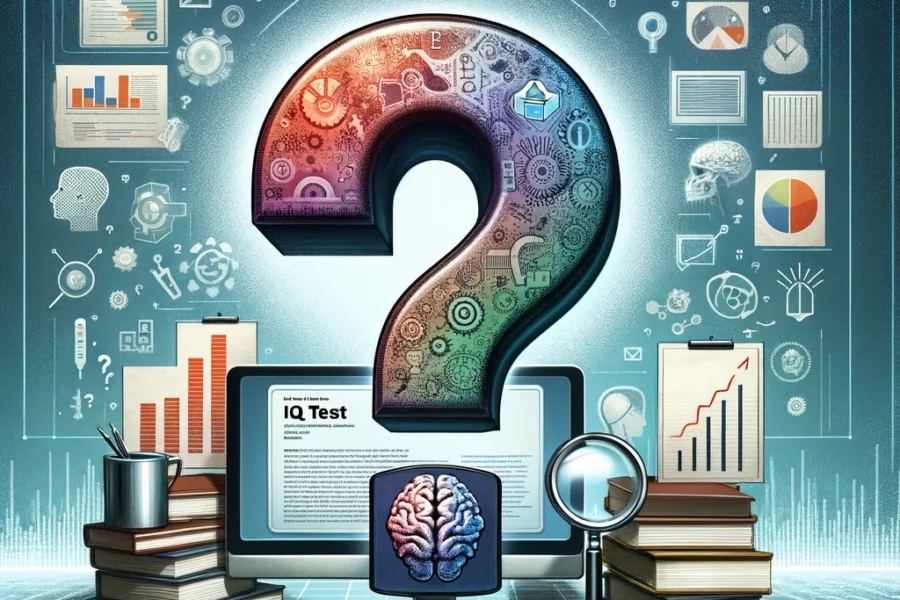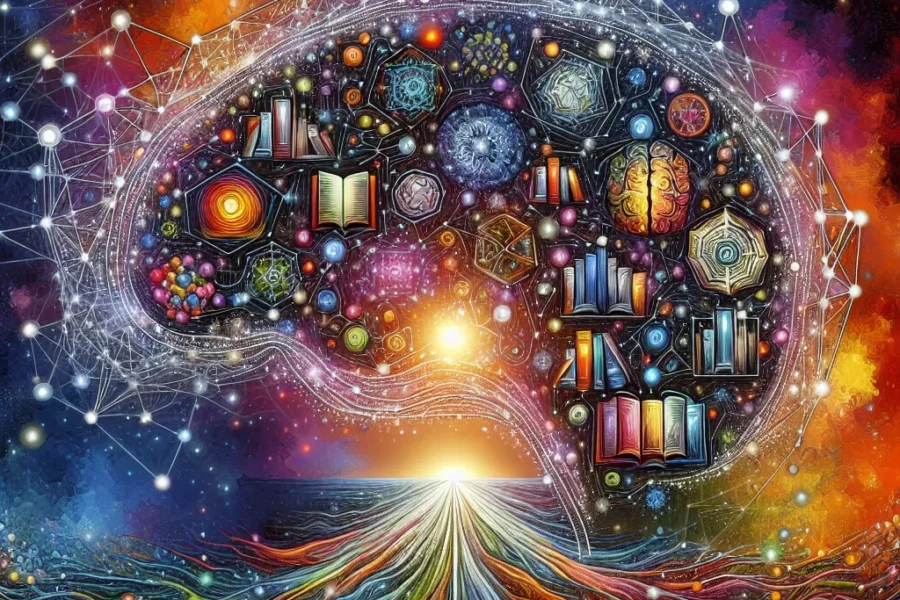Divergent Reasoning: Unlocking Creative Potential in Problem-Solving
In today’s rapidly evolving digital age, divergent reasoning has emerged as a critical cognitive skill that sets human intelligence apart from artificial intelligence. This sophisticated thought process, increasingly valued in cognitive psychology and modern education, represents our unique ability to generate multiple innovative solutions to complex problems. While AI excels at convergent thinking, human divergent reasoning continues to be the driving force behind breakthrough innovations, artistic expression, and novel problem-solving approaches. In our technology-driven world, where automation is becoming ubiquitous, the ability to think divergently has become not just beneficial but essential for professional success and personal growth.
If you want you know your own IQ, we have a free iq test here.
Recent neuroscience research has revealed that divergent reasoning activates multiple brain regions simultaneously, creating neural networks that facilitate creative problem-solving. This type of thinking has become particularly crucial in today’s business landscape, where disruption and innovation are constant. Companies like Tesla, SpaceX, and Apple have demonstrated how divergent thinking can revolutionize entire industries and create previously unimaginable solutions to complex challenges.
Understanding the distinction between divergent and convergent reasoning is fundamental. While convergent reasoning follows a linear path to find one correct answer, divergent reasoning explores multiple pathways, embracing ambiguity and uncertainty. This contrast has become increasingly relevant in our modern world, where complex global challenges often require innovative, multi-faceted solutions rather than simple, straightforward answers.
Modern educational institutions are revolutionizing their approach to teaching by incorporating divergent reasoning into their curricula. Project-based learning, design thinking workshops, and collaborative problem-solving exercises are now common features in progressive schools. These methods prepare students for a future where adaptability and creative thinking are paramount, especially as artificial intelligence continues to automate routine cognitive tasks.
The relationship between creativity and divergent reasoning has gained new significance in the age of digital transformation. While computers can generate variations based on existing patterns, true creative innovation – the ability to produce genuinely novel and valuable ideas – remains a uniquely human capability rooted in divergent thinking. This distinction has become increasingly important as organizations seek to maintain their competitive edge in an AI-driven world.
Recent studies in cognitive science have identified optimal conditions for divergent reasoning. These include environments rich in psychological safety, adequate time for deep thinking, and exposure to diverse perspectives and experiences. The rise of remote work and digital collaboration has created new challenges and opportunities for fostering these conditions in virtual spaces.
Contemporary techniques for enhancing divergent reasoning have evolved beyond traditional brainstorming. New methods include design sprints, future scenario planning, and AI-assisted ideation tools that help overcome cognitive biases and expand the scope of possible solutions. These approaches recognize that innovation often emerges from the intersection of different disciplines and perspectives.
Neuroscience research has revealed fascinating connections between personality traits, brain structure, and divergent thinking abilities. Studies using advanced imaging techniques have shown that individuals who excel at divergent reasoning often have stronger connections between different brain regions, particularly in areas associated with cognitive flexibility and creative thinking.
The challenges of divergent reasoning in our modern context include information overload and the pressure to make rapid decisions. While the digital age provides unprecedented access to information and tools for ideation, it can also lead to decision paralysis and creative blockages. Learning to balance divergent exploration with practical implementation has become a crucial skill.
Developing divergent reasoning skills now involves engaging with both traditional and digital tools. Virtual reality experiences, cross-cultural collaborations, and exposure to diverse digital content can all contribute to expanding one’s capacity for divergent thinking. The key is maintaining a growth mindset while embracing new technologies and methodologies.
As artificial intelligence continues to advance, the unique value of human divergent reasoning becomes more apparent. While AI can process vast amounts of data and identify patterns, the ability to make unexpected connections, challenge fundamental assumptions, and envision entirely new possibilities remains distinctly human.
In the startup ecosystem, divergent reasoning has become even more crucial for identifying opportunities in emerging technologies like blockchain, quantum computing, and sustainable energy. Successful entrepreneurs increasingly combine divergent thinking with data-driven insights to create innovative solutions to global challenges.
The scientific community has particularly benefited from advances in divergent reasoning methodologies. Interdisciplinary research teams are using divergent thinking approaches to tackle complex challenges like climate change, disease prevention, and space exploration. This has led to breakthrough discoveries that would have been impossible through conventional thinking alone.
Today, divergent reasoning represents more than just a cognitive skill – it’s a fundamental capability that enables human adaptation and innovation in an increasingly complex world. As we face unprecedented global challenges and rapid technological change, the ability to think divergently becomes essential for creating sustainable solutions and driving meaningful progress. Whether in artificial intelligence development, climate science, or social innovation, divergent reasoning continues to be the key to unlocking human potential and shaping our collective future.




Leave a Comment